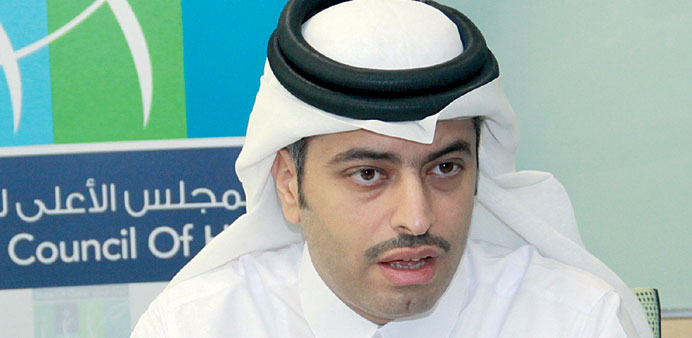|
|
Beginning from the next academic year, a dental examination will be made compulsory for children’s admission to kindergarten, the Supreme Council of Health (SCH) announced yesterday.
Children, aged four years, seeking admission to kindergartens in Qatar are already expected to have completed their immunisation schedule, have their eyes and ears checked as well as get certified fit to start school.
Dental health check-ups have been made a mandatory pre-school test after the first National Oral Health Survey found that more than 50% of children aged 12-15 years and seven out of 10 children aged six years in Qatar were suffering from dental caries. A total of 3,248 children took part in the survey.
Plans are afoot to review the current and future status of dental clinics in Primary Healthcare Centres across the country as major expansions are being planned, according to SCH Public Health department director Dr Mohamed al-Thani.
“We are preparing the grounds for the National Oral Health Strategy which we hope to launch very soon. But with the findings of this survey, we hope to educate families on how to take care of their young children’s dental health before they start schooling,” he said.
He maintained that emphasis would be on preventive measures rather than curative as parents would be encouraged to ensure their children were getting adequate levels of flouride daily, either through drinking fluoride-fortified water or by oral application of fluoride to the children’s gum twice a year.
Parents will also be encouraged to administer permanent teeth sealant for their children in order to avoid irreparable damage to their permanent teeth, he said.
“We are going to ensure the implementation of oral screening for children before they start school and we will like to caution parents to reduce their children’s sugar or sweets intake to further prevent gum or tooth decay,” he stated.
Dr Mohamed al-Thani was speaking at a press conference organised to announce the findings of the oral health survey, which was conducted in accordance with the standards adopted by the World Health Organisation (WHO), in 316 government and private schools in the country.
The survey aimed at finding the true status of oral and dental health in Qatar.
Dr Mohamed al-Thani said that a sample of 3,248 out of 4,200 students aged six, 12 and 15 years, in some 316 government and private schools, was selected to be covered during the survey, with a response rate of 81%.
The decision to include dental health in pre-school medical check-up was part of efforts to meet two different goals set by the WHO, he said.
“First, at least 50% of children below six to be free of caries; second, the rate of caries prevalence to be no more than three among children aged 12.”
According to him, the survey has enabled Qatar to achieve the second goal, but it is still trying to achieve the first as only 30% of children aged six are free of caries.
“The survey finds that the incidence of tooth decay is higher among girls than boys, the incidence of tooth decay is higher among Qataris than non-Qataris and the incidence of tooth decay is higher among students in government schools than in international or private schools,” SCH Health Promotion and Noncommunicable Diseases manager Sheikha al-Anoud bint Mohamed al-Thani said.
Sheikha al-Anoud al-Thani asserted that the survey was important as it contributed to achieving the National Health Strategy objectives as well as creating an accurate database .
Dr Mohamed al-Thani applauded the efforts of the entities who took part in the survey: the SCH, Supreme Education Council, Ministry of Development Planning and Statistics, Hamad Medical Corporation, Primary Healthcare Corporation, in close co-operation with WHO and its Centre for Studies at Copenhagen University.
Another oral health survey will be conducted within the next five years to assess the country’s performance.

